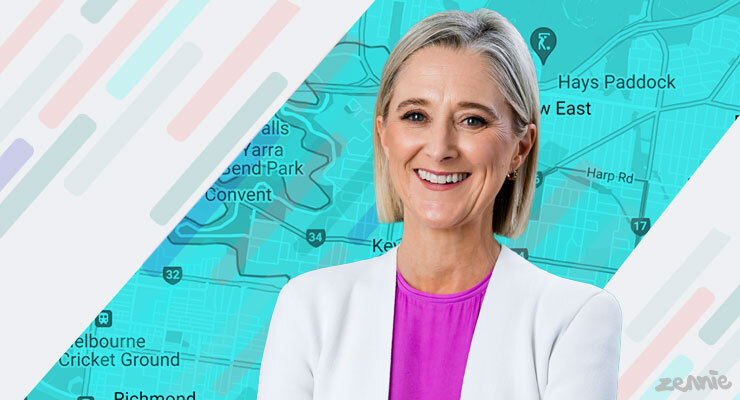
The behaviour at pre-poll centres during the Victorian state election has been so unruly that the electoral commission has even limited campaigners at some centres. Meanwhile, the major candidates for Kew observe a “ceasefire” every day at pre-poll, having lunch together and agreeing to not bail up any passing constituents for roughly 45 minutes.
As friendly as that sounds, independent candidate for Kew Sophie Torney and I have to chat well away from the centre on Whitehorse Road, crowded with green, red, blue and teal shirts, so she’s not suspected of breaching the terms.
“We actually really like each other,” she says. “We all have different politics, but we can have that discussion. There may even be a post-election candidates dinner.”
It is all pretty sunny and civil given that just over a week ago, Torney — along with fellow teals Melissa Lowe and Kate Lardner — was threatened with jail over how-to-vote cards.
“The only time I got worried and upset was the cease and desist and the threat of six months’ jail. That was like, ‘Can we put it in perspective, in terms of what the major parties are doing?'” she says. “So there were a few nights of feeling pretty stressed.”
They were eventually successful in having the ruling overturned.
Kew and the neighbouring seat of Hawthorn collectively cover the same territory as the federal seat of Kooyong, where former treasurer Josh Frydenberg sensationally lost to Monique Ryan in May. As such, they’re viewed as the seats most likely to go the same way in the state election. Of those two, Kew is considered the more likely.
I ask Torney whether she worries about being the only teal in state Parliament, isolated in a way her federal counterparts aren’t.
“When I started this process, and even now, it was about representing Kew, so I never thought about whether there’d be a whole bunch of us,” she says. “So if there are other independents with similar values, great, but happy to go anyway.”
Torney confirms my assertion that she could have been the product of a random teal candidate generator. She has that same sunny self-belief, that same can-do and practical solutions approach. Like Zali Steggall, she invokes her background in business as a qualification, the ability to negotiate and compromise. Like Kate Chaney, she’s very keen on a robust, civil exchange of ideas. And like all of them, you can easily imagine her as a member of a different Liberal Party than the one we’ve got.
Torney says her first-day priority is “absolutely stopping the logging of native forests, because we’re on such a timeframe with that”.
“Since colonisation, 76% of Victoria’s native forests have gone,” she says. “And what we’ve got left we really need to save — up in the Central Highlands are some of the densest carbon stores in the world.”
She goes on to attack the practice as bad for the environment and bad business, something a member of a consistent and thought-out conservative opposition could have easily said.
After the interview, partly to avoid the gauntlet, I veer off the main road and go the long way back to my car, winding through the grand suburbs, giants house of red, brown and beige, the places the Liberal Party used to call home.








“…you can easily imagine her as a member of a different Liberal Party than the one we’ve got.” A great observation. Every Liberal voter who allowed their party to be taken away from them should use this as food for thought.
Yes!but will they?
They’ll need to be asbestos trees, not Eucalypts. So sorry. Save them? Too late.
We need forests because – well, because we need forests. Saying that we need them because they store carbon risks excusing carbon emissions. It is tying the need to protect the forests to a very uncertain crusade. It is always possible that some Trumpish government comes to power, dismissing decarbonisation and everything attached to it, including protecting the forests.
Dan Andrews is the Trumpish government leader. He has a so-called policy of phasing out logging in native forests by 2030 and not allowing logging of old growth forests. But he allows the loggers to decide whether a coupe is old growth or not. And the loggers always find that a coup I not old growth and clear fell it. The only way loggers are stopped from clearfelling everything is when an environment group takes them to court – and the environment group generally wins.
It seems that they’ve worked out that they can get through all the forests with large trees, diverse old forests by 2030 and its open slather until then.
All power to Sophie Torney and I hope she wins the balance of power.